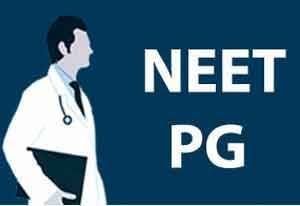The recent Supreme Court ruling has significantly impacted the admissions process for MBBS candidates with speech impairments, marking a pivotal moment in the pursuit of inclusivity within the medical profession. The case arose from the concerns of candidates who argued that their speech impairments should not disqualify them from entering the field of medicine. The plaintiffs contended that the ability to communicate verbally, while important, should not be the sole criterion for assessing a candidate’s capability to perform effectively as a medical professional.

Key players in this case included the petitioners, a group of aspiring medical students with speech impairments, and educational institutions that adhered to traditional assessment criteria. The legal arguments presented centered on the principles of equality and non-discrimination enshrined in the Constitution, particularly emphasizing that every individual, regardless of their disabilities, should have equal opportunities in education and employment.
Throughout the proceedings, advocates highlighted how advancements in technology and alternative communication methods are reshaping the landscape of patient care. The Supreme Court justices deliberated on the broader implications of these arguments, weighing historical precedence against contemporary needs for inclusivity in healthcare. Ultimately, the court’s decision underscored the notion that competency in medicine extends beyond verbal communication alone.
The implications of this landmark ruling are profound. It paves the way for future MBBS candidates with speech impairments, granting them the opportunity to pursue their aspirations in medicine without facing discrimination based on their ability to speak. This decision is expected to challenge medical schools and regulatory bodies to develop more holistic evaluation criteria that consider various competencies, thus fostering a more diverse healthcare workforce capable of catering to the diverse needs of the patient population.
The Importance of Inclusivity in Medical Education
Inclusivity in medical education is crucial for creating a healthcare workforce that adequately reflects the diverse population it serves. Traditionally, candidates with speech impairments have faced systematic barriers within this educational framework. These obstacles can include strict communication standards that overlook the capabilities and potential contributions of these individuals. By recognizing and addressing these barriers, we can open pathways for students who have historically been excluded from entering the medical profession.
The barriers faced by candidates with speech impairments are multifaceted. They often encompass not just the academic requirements of medical education but also the social dynamics within medical training environments. Individuals with speech impairments may encounter challenges in communication, which can discourage them from pursuing a career in medicine. Furthermore, medical education has tended to emphasize conventional communication methods, leaving little room for alternative forms of expression that could effectively serve patients and colleagues alike. This lack of understanding perpetuates stereotypes and limits opportunities for many aspiring healthcare professionals.
However, embracing inclusivity in medical education is not merely about compliance with legal standards; it is about enriching the medical field. A diverse medical workforce leads to varied perspectives that can enhance patient care and outcomes. Healthcare provided by professionals with diverse backgrounds, including those with disabilities, fosters empathy, cultural competence, and understanding among practitioners. This diversity ensures that a wider range of patient experiences are considered, ultimately making healthcare services more equitable and effective.
Accommodating individuals with speech impairments in medical training contributes to a healthcare system that is equipped to serve all facets of society. The Supreme Court’s landmark decision to allow MBBS candidates with speech impairments is a commendable step towards fostering an inclusive environment, ensuring that everyone has the opportunity to contribute to the field of medicine. This pivotal change will not only benefit individuals with disabilities but also enhance the quality of healthcare delivery for the entire community.Reactions to the Supreme Court’s Decision
The Supreme Court’s recent ruling permitting MBBS candidates with speech impairments to pursue medical education has evoked a diverse array of reactions from multiple stakeholders, including medical associations, disability rights advocates, and the candidates directly impacted by the decision. This landmark decision is seen as a pivotal step towards inclusivity within the medical profession, challenging longstanding perceptions about the capabilities of individuals with disabilities.
Medical associations have largely embraced the ruling, recognizing its potential to cultivate a diverse medical workforce that reflects the society it serves. Many argue that healthcare professionals with disabilities can offer unique perspectives and empathy, enriching the patient-care experience. Prominent figures in the medical community have noted that the ruling not only broadens the scope of who can enter the medical field but also fosters an environment where differences are viewed as strengths, rather than barriers.
Disability rights advocates have hailed the decision as a significant victory. They emphasize the importance of equal opportunities in education and employment for individuals with disabilities. Advocacy groups have highlighted that this decision aligns with the broader movement towards accessibility and equity within all professional fields. They contend that allowing candidates with speech impairments to pursue MBBS not only benefits those individuals but also paves the way for systemic changes that improve the overall representation of disabled persons in various occupations.
Affected candidates have expressed feelings ranging from relief to empowerment. Many have shared their stories of overcoming challenges related to their impairments and have long aspired to join the medical community. Their testimonies bring to light the importance of this ruling, showcasing how it provides them with a chance to fulfill their ambitions and contribute meaningfully to healthcare.
Overall, public opinion seems to reflect a growing understanding of the value that diverse experiences bring to medical education and practice. Media coverage has also played a crucial role in shaping perceptions, highlighting those who stand to benefit and the importance of inclusivity within the healthcare system Future Prospects and Changes in Medical Training Programs
The recent ruling by the Supreme Court to allow MBBS candidates with speech impairments to pursue their medical education has significant implications for medical training programs across the country. This landmark decision not only promotes inclusivity but also raises critical discussions regarding the existing curricula and the necessity for systematic adjustments. Medical schools may need to reassess their educational frameworks to effectively integrate students who navigate communication challenges, ensuring that the essential competencies for patient care are maintained while accommodating diverse communication styles.
One crucial area that may undergo change involves the incorporation of technology-assisted communication aids into the medical curriculum. These innovations, such as speech-generating devices and alternative communication software, can empower candidates with speech impairments to engage fully with both their instructors and peers. Such tools can facilitate clearer communication of medical knowledge and foster collaborative learning environments. Training programs could include specific modules on the use of these technologies, thus preparing all students, regardless of their communication abilities, for a modern healthcare setting that increasingly relies on technology.
Moreover, admission policies at medical institutions may also need reevaluation to prioritize equity. Revisions could emphasize a holistic review process that considers candidates’ diverse experiences, strengths, and capabilities. By adopting a more comprehensive evaluation process, schools can ensure that they not only meet educational standards but also embrace a diverse student body that reflects the society they serve.
This ruling also serves as a potential model for other educational fields, encouraging broader shifts towards inclusivity and equal opportunities for students with disabilities. By fostering an environment that champions accessibility and support, educational institutions can enhance collaborative learning and cultivate a workforce better equipped to serve diverse populations.





